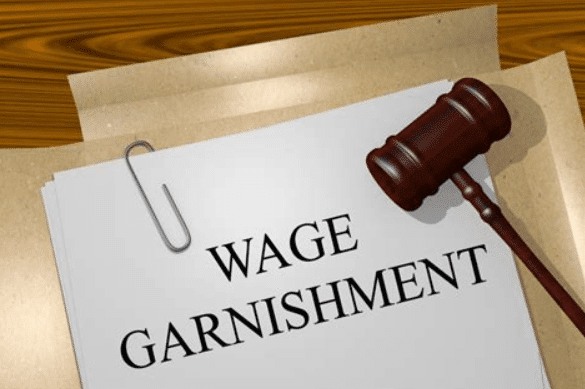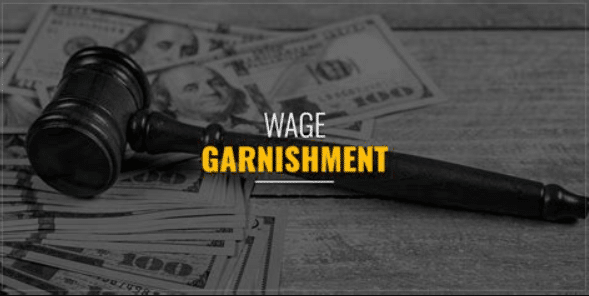As a Texas resident, you have certain protections from wage garnishment and liens. Here is the ZumaZip.com guide on Texas laws on garnishment and how you can respond to a debt lawsuit.
When you are in debt, being the subject of a judgment can be quite stressful. A judgment is an order issued by a judge that holds you liable for a certain amount. Judgments can also involve real property, such as vehicles, jewelry, or your home.
Judgments are typically issued when you owe money and fail to pay. If the amount you owe is large enough to warrant the hassle, they may file a Complaint with the local courts. They must show proof that you owe the debt and that they have made extensive attempts to collect it.
The judge will make a decision based on the facts presented. If they rule against you and issue a Judgment, the debt collector can take action to collect those funds.
Two of the most common practices they use are issuing liens and garnishing wages. A lien gives the debt collector the right to seize the asset. Liens can get tricky, especially if you are currently paying for the asset in question.
When issuing liens or garnishing wages, debt collectors must follow the laws in the state you live in. If you reside in Texas, you have quite a few rights when it comes to dealing with debt collectors. You might even be considered “judgment proof,” depending on your circumstances.
It is important to know your rights when you are in debt because doing so will help you respond appropriately to a debt lawsuit.
What is the standard protocol for wage garnishment?
In many states, debt collectors can go directly for your wages after a judgment is issued. Some states allow debt collectors to garnish as much as 25% of your wages. These funds are removed from your check before you ever see a dime. As you might imagine, having your wages garnished is an awful experience.
The headaches don’t stop there. Most states give debt collectors the ability to put liens on your vehicles. This doesn’t make much sense, as you will have difficulty getting to work without a vehicle. Still, putting liens on cars is common practice in many places.
Fortunately, Texas puts a stop to many merciless debt collection tactics. This does not mean that debt collectors are powerless in Texas. However, they do have to play by a fairer set of rules.
How does wage garnishment work in Texas?
Texas’ wage garnishment laws are quite unique. They can also be a bit confusing due to the terms the courts use to describe income garnishments.
Let’s say that a debt collector wins a judgment against you and requests to garnish your wages to collect. In this scenario, the judge will issue a Writ of Garnishment. However, Texas law prohibits this Writ of Garnishment from being used to garnish “incoming wages.” The term “incoming wages” simply means funds that you have not yet received.
Instead, debt collectors that win a judgment will need to contact your bank. They can present the Writ of Garnishment and have your bank account frozen. The debt collectors can then obtain funds straight from your account. This should worry you, especially if you have a healthy savings account.
There are a few exceptions to Texas wage garnishment laws. Your wages can be garnished if you have one of four types of non-ordinary debts. These debts include:
- Unpaid taxes
- Student loans
- Spousal support (alimony)
- Child support
Otherwise, your wages are safe, at least until they hit your bank account. You could always request paper checks and skip direct deposit until you sort out your financial troubles.
Even though you have protections, the best approach is to avoid being sued altogether. You can do this by quickly responding to Collection Letters or offering to settle outside of court.
Can you be “judgment-proof” in Texas?
Technically, yes, you can become judgment-proof in Texas. It is actually easier to become judgment-proof in Texas than in many other states.
A person is “judgment-proof” if they do not own anything that debt collectors are allowed to take. If you have dealt with debt collectors before, you know they will snag anything to pay down your bill. This includes family heirlooms, jewelry, firearms, tools, boats, bicycles, and even cattle—after all, we are talking about the state of Texas.
If you own cattle, don’t worry, as the state provides some protections for your cows and other livestock as well.
What specific lien protections does Texas law provide debtors?
All of the lien protections provided by the state of Texas are listed in the Texas Property Code Title 5, Chapter 42.
While it is important to know your rights regarding liens and garnishments, reading the Texas Property Code can be downright boring. That’s why we have provided the highlights here.
To be clear, these exemptions do not apply to the institution that financed your purchase of the property. For example, if you stop making payments on your car, the lender can repossess it. This is because they already have a lien on the vehicle.
The protections we are outlining below prevent other debt collectors from placing a lien on the specific property. No lien means no seizure.
Let’s start with homes. If your home is homesteaded, which means you use it as your primary residence, it cannot be seized.
Your cars are safe as well. According to Chapter 42 of the Texas Property Code, you can have one vehicle per licensed driver. If you and your spouse each have a driver’s license, then two of your vehicles are exempt from liens. If you have more, they could be seized.
A few other items that are exempt from liens in Texas include:
- Family heirlooms
- Farming equipment (including your tractor or mower)
- Boats, if used as part of your profession
- $25,000 in jewelry for families ($12,500 for a single adult)
- Two firearms total (not per household member)
- Two horses, mules, or donkeys
- 12 head of cattle
- 60 head of other livestock (pigs, goats, etc.)
- 120 fowl
As you can see, Texas offers plenty of protections when a debt collector sues you. However, you can still lose a suit by default if you do not respond to the Complaint within the designated time frame. This time frame is usually between two weeks and 30 days.
If you want to exercise these rights and protect your assets, respond quickly with help from ZumaZip.com. Doing so can save you a lot of stress. You might even be able to settle out of court and reduce your bill or get the case dismissed entirely.
Respond to a debt lawsuit in Texas
If you’ve been sued for a debt you owe, the first step to winning in court is to respond to the lawsuit with a written Answer. Follow these three steps to answer your debt collection lawsuit:
- Answer each claim listed in the Complaint document.
- Assert your affirmative defenses.
- File your Answer with the court, and send a copy to the party suing you.
What is ZumaZip?
ZumaZip is a convenient solution designed to streamline your response to a debt collection lawsuit. Here’s a breakdown of what you can expect when you use ZumaZip:
Firstly, you’ll access our user-friendly web application, which guides you through the process step by step. You’ll be prompted to answer a series of questions related to your specific situation. Once you’ve completed the questionnaire, you have the option to either print out the finalized forms and mail them to the appropriate courts yourself, or you can opt to utilize ZumaZip’s services to file them on your behalf. Additionally, if you choose this option, an attorney will review your document for added peace of mind.
If you’re seeking guidance on how to effectively respond to a debt collection lawsuit, ZumaZip can provide the assistance you need. Feel free to explore our FAQs for more information on what ZumaZip has to offer.
What if I haven’t been sued yet?
If you’ve only received a collections notice, but not a lawsuit, the best way to respond is with a Debt Validation Letter. When a debt collector contacts you in any way, whether it’s by phone or mail, you can respond by formally requesting a debt validation with a Debt Validation Letter . This letter notifies the collector that you dispute the debt and forces them to provide proof you owe the debt. They can’t call you or continue collecting until they provide validation of the debt. This flowchart shows how you can use a Debt Validation Letter to win.
Get started with a Debt Validation Letter here.
How to Answer a Summons for debt collection in all 50 states
Here’s a list of guides on how to respond to a debt collection lawsuit in each state:
- Alabama
- Alaska
- Arizona
- Arkansas
- California
- Colorado
- Connecticut
- Delaware
- Florida
- Georgia
- Hawaii
- Idaho
- Illinois
- Indiana
- Iowa
- Kansas
- Kentucky
- Louisiana
- Maine
- Maryland
- Massachusetts
- Michigan
- Minnesota
- Mississippi
- Missouri
- Montana
- Nebraska
- Nevada
- New Hampshire
- New Jersey
- New Mexico
- New York
- North Carolina
- North Dakota
- Ohio
- Oklahoma
- Oregon
- Pennsylvania
- Rhode Island
- South Carolina
- South Dakota
- Tennessee
- Texas
- Utah
- Vermont; Vermont (Small Claims court)
- Virginia
- Washington
- West Virginia
- Wisconsin
- Wyoming
Guides on how to beat every debt collector
Hey there! Facing off against a debt collector can feel like a daunting challenge, but fear not! We’re here to help you navigate through it all with our handy guides designed to assist you in beating every debt collector you encounter. Whether you’re facing a new lawsuit or dealing with a persistent collector, we’ve got your back. Stay positive, stay informed, and let’s tackle this together!
- Absolute Resolutions Investments LLC
- Accredited Collection Services
- Alliance One
- Amcol Clmbia
- American Recovery Service
- Asset Acceptance LLC
- Asset Recovery Solutions
- Associated Credit Services
- Autovest LLC
- Cach LLC
- Cavalry SPV I LLC
- Cerastes LLC
- Colinfobur
- Covington Credit
- Crown Asset Management
- CTC Debt Collector
- Cypress Financial Recoveries
- Delanor Kemper & Associates
- Eagle Loan of Ohio
- Educap
- Estate Information Services
- FIA Card Services
- Forster & Garbus
- Freshview Solutions
- Fulton Friedman & Gullace LLP
- Harvest Credit Management
- Howard Lee Schiff
- Hudson & Keyse LLC
- Integras Capital Recovery LLC
- Javitch Block
- Jefferson Capital Systems LLC
- LVNV Funding
- Mannbracken
- Mariner Finance
- Medicredit
- Michael J Adams PC
- Michael J Scott
- Midland Funding LLC
- Mullooly, Jeffrey, Rooney & Flynn
- Mountain Land Collections
- MRS Associates
- National Collegiate Trust
- Nationstar Foreclosure
- Northstar Capital Acquisition
- NCEP LLC
- NRC Collection Agency
- OneMain Financial
- Palisades Collection LLC
- Pallida LLC
- Paragon Revenue Group
- Pinnacle Collections Agency
- PMAB LLC
- Portfolio Recovery Associates
- Provest Law
- PYOD LLC
- Reunion Student Loan Finance Corporation
- Revenue Group
- Regents and Associates
- RSIEH
- Salander Enterprises LLC
- Second Round Sub LLC
- Security Credit Services
- Sherman Financial Group
- Suttell and Hammer
- T-Mobile
- Transworld Systems
- Tulsa Teachers Credit Union
- UCB Collection
- Velo Law Office
- Velocity Investments
- Waypoint Resource Group
- Weinberg and Associates
- Wolpoff & Abramson
Settle your medical debt
Having a health challenge is stressful, but dealing medical debt on top of it is overwhelming. Here are some resources on how to manage medical debt.
- Am I Responsible for My Spouse’s Medical Debt?
- Do I Need a Lawyer for Medical Bills?
- Do I Need a Lawyer to Fight Medical Bill Debt?
- Does Bankruptcy Clear Medical Debt?
- How Much Do Collection Agencies Pay for Medical Debt?
- How to Find Medical Debt Forgiveness Programs
- Is There a Statute of Limitations on Medical Bills?
- Medical Debt Statute of Limitations by State
- Summoned to Court for Medical Bills — What Do I Do?
- Summoned to Court for Medical Bills? What to Do Next
Stop calls from Debt Collectors
Do you keep getting calls from an unknown number, only to realize that it’s a debt collector on the other line? If you’ve been called by any of the following numbers, chances are you have collectors coming after you, and we’ll tell you how to stop them.
- 800-390-7584
- 800-289-8004
- 800-955-6600
- 877-366-0169
- 877-591-0747
- 800-278-2420
- 800-604-0064
- 800-846-6406
- 877-317-0948
- 888-899-4332
- 888-912-7925
- 202-367-9070
- 502-267-7522
Other wage garnishment resources
- Bank Account Garnishment and Liens in Texas
- Can I Stop Wage Garnishment?
- Can My Wife’s Bank Account Be Garnished for My Debt?
- Can Payday Loans Garnish Your Wages?
- Can pensions be garnished?
- Can Private Disability Payments Be Garnished?
- Can Social Security Disability Be Garnished?
- Can They Garnish Your Wages for Credit Card Debt?
- Can You Stop a Garnishment Once It Starts?
- Guide to Garnishment Limits by State
- How Can I Stop Wage Garnishments Immediately?
- How Long Before a Creditor Can Garnish Wages?
- How Long Does It Take to Get Garnished Wages Back?
- How to Fight a Wage Garnishment
- How to Prevent Wage Garnishment
- How to Stop a Garnishment
- How to Stop Social Security Wage Garnishment
- How to Stop Wage Garnishment — Everything You Need to Know
- New York Garnishment Laws – Overview
- Ohio Garnishment Laws — What They Say
- Wage Garnishment Lawyer
- What Is Wage Garnishment?



































